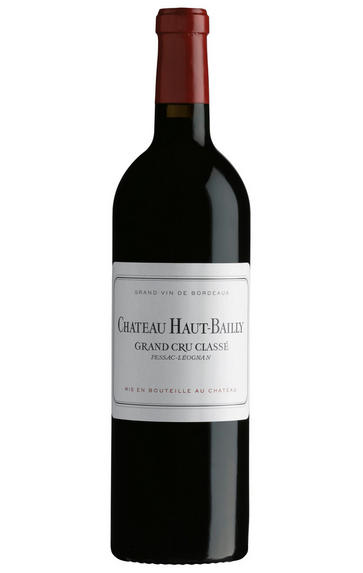
2008 Château Haut-Bailly, Pessac-Léognan, Bordeaux
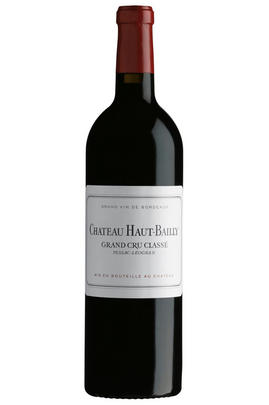
Critics reviews
Robert M. Parker, Jr. - 02/05/2011
Jancis Robinson MW - jancisrobinson.com - Apr 09
A candidate for the -wine of the vintage,- the 2008 Haut-Bailly possesses incredible complexity. Tell-tale notes of lead pencil shavings, charcoal, damp earth, black cherries and black currants intermixed with a hint of subtle barbecue smoke are present in this classic, quintessential Graves. Medium-bodied with an emerging, precocious complexity, it is a super-pure, beautifully textured, long wine that can be drunk now or cellared for 20-25 years. Bravo!
Robert Parker- Wine Advocate- May 2011
...The 2008 will compete, perhaps eclipse the sensational 2005 and 2006. A dense ruby/purple color is followed by notes of charcoal, graphite, black currants, sweet cherries, spice box, and subtle earth. The wine possesses super purity, a medium to full-bodied, gorgeous texture, ripe, sweet tannins, and a layered mouthfeel. The acidity provides freshness, vibrancy, and delineation to all the component parts of this very concentrated yet quintessentially elegant wine. It is a sensational effort that should begin showing secondary nuances of complexity in 8-10 years, and evolve for three decades or more.
Robert Parker - Wine Advocate - Apr-2009
About this WINE
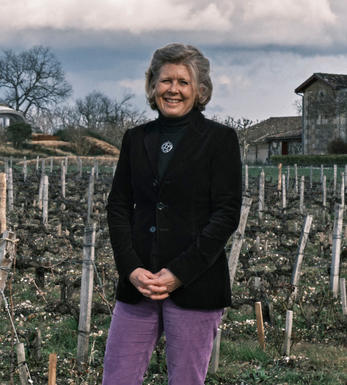
Chateau Haut-Bailly
Château Haut-Bailly is a Graves Cru Classé estate that has really hit form in the last 5-7 years. Haut-Bailly was bought by the Sanders family in 1955 and was run by Jean Sanders until 1998 when Robert G. Wilmers, an American banker, purchased it. It is located in the commune of Léognan, which is usually more associated with white wine production.
Haut-Bailly has 28 hectares of vineyards which are very well sited on high, gravelly ground just east of Léognan village. The wine is a blend of Cabernet Sauvignon (65%), Merlot (25%) and Cabernet Franc (10%). It is matured in small oak barriques (50% new) for 15 months and is bottled unfined and unfiltered.
Ch. Haut-Bailly makes small quantities of a rosé from 100% Cabernet Sauvignon, preferring to use the single varietal to maintain freshness in the blend. The wine is fermented 1/3 in new oak barrels and 2/3 in stainless steel at 16°C.
Haut-Bailly is renowned for its smoothness and silkiness but, since the mid 1990s, the wines have better depth of fruit as well as more grip, concentration and body. They are now amongst the top echelons of Pessac-Léognan wines.
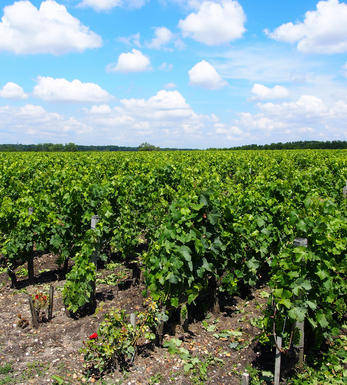
Pessac-Leognan
In 1986 a new communal district was created within Graves, in Bordeaux, based on the districts of Pessac and Léognan, the first of which lies within the suburbs of the city. Essentially this came about through pressure from Pessac-Léognan vignerons, who wished to disassociate themselves from growers with predominately sandy soils further south in Graves.
Pessac-Léognan has the best soils of the region, very similar to those of the Médoc, although the depth of gravel is more variable, and contains all the classed growths of the region. Some of its great names, including Ch. Haut-Brion, even sit serenely and resolutely in Bordeaux's southern urban sprawl.
The climate is milder than to the north of the city and the harvest can occur up to two weeks earlier. This gives the best wines a heady, rich and almost savoury character, laced with notes of tobacco, spice and leather. Further south, the soil is sandier with more clay, and the wines are lighter, fruity and suitable for earlier drinking.
Recommended Châteaux: Ch. Haut-Brion, Ch. la Mission Haut-Brion, Ch. Pape Clément, Ch Haut-Bailly, Domaine de Chevalier, Ch. Larrivet-Haut-Brion, Ch. Carmes Haut-Brion, Ch. La Garde, Villa Bel-Air.
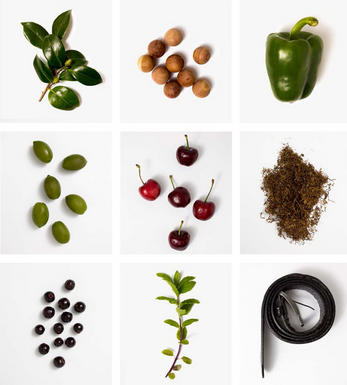
Cabernet Sauvignon Blend
Cabernet Sauvignon lends itself particularly well in blends with Merlot. This is actually the archetypal Bordeaux blend, though in different proportions in the sub-regions and sometimes topped up with Cabernet Franc, Malbec, and Petit Verdot.
In the Médoc and Graves the percentage of Cabernet Sauvignon in the blend can range from 95% (Mouton-Rothschild) to as low as 40%. It is particularly suited to the dry, warm, free- draining, gravel-rich soils and is responsible for the redolent cassis characteristics as well as the depth of colour, tannic structure and pronounced acidity of Médoc wines. However 100% Cabernet Sauvignon wines can be slightly hollow-tasting in the middle palate and Merlot with its generous, fleshy fruit flavours acts as a perfect foil by filling in this cavity.
In St-Emilion and Pomerol, the blends are Merlot dominated as Cabernet Sauvignon can struggle to ripen there - when it is included, it adds structure and body to the wine. Sassicaia is the most famous Bordeaux blend in Italy and has spawned many imitations, whereby the blend is now firmly established in the New World and particularly in California and Australia.


Buying options
Add to wishlist
Description
The lovely Véronque Sanders is as elegant as her wines. Like all her successful counterparts in 2008, Véronique was completely focused on tending the vineyard during the wet summer and long dry autumn, and this hard work has really paid off. The 2008 is a beautiful, floral powerhouse displaying the gorgeous, ripe, silky cassis fruit of the vintage but with a chocolaty complexity that makes it a delight to taste even en primeur. Multiple layers of fruit and savoury notes add complexity whilst the minerally, graphite finish is that of a benchmark Péssac-Léognan. Harmonious, with lovely balance and an awesome length, this is one of the stars of the vintage.
Berry Bros. & Rudd
wine at a glance
Delivery and quality guarantee